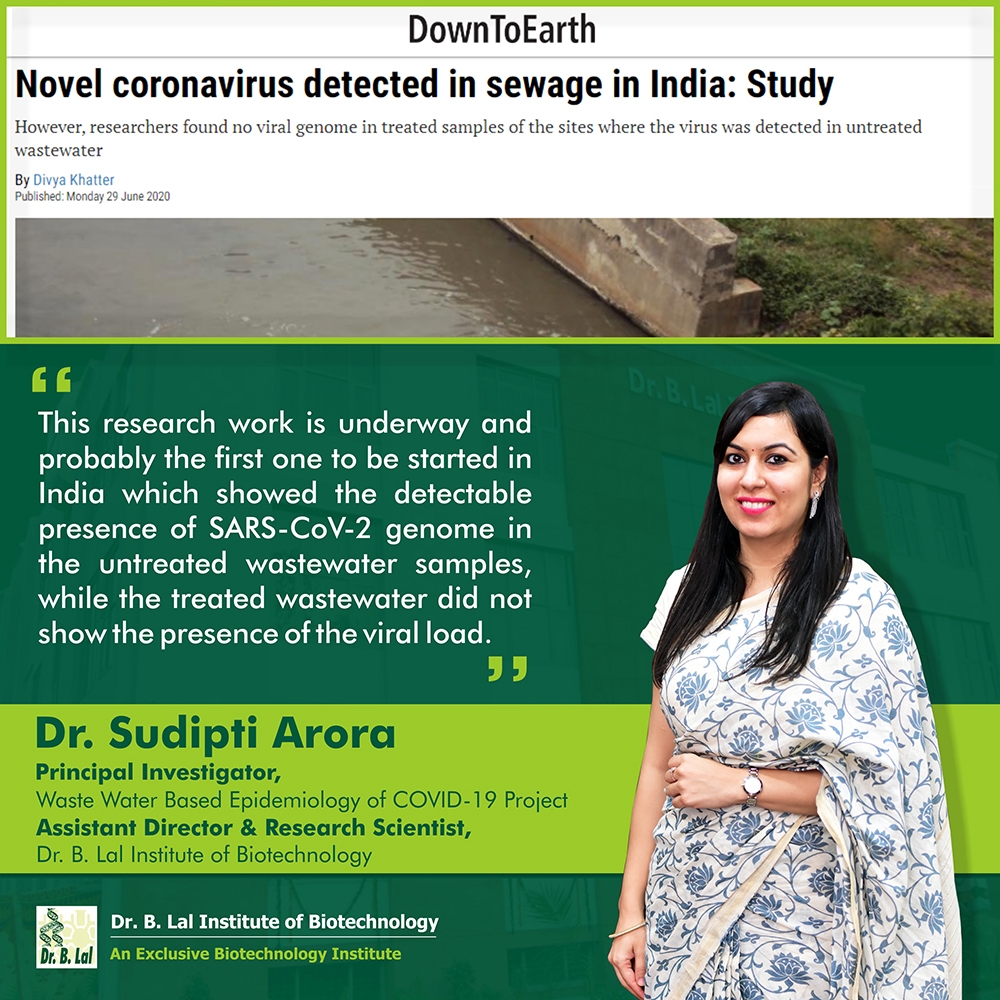
Environmental Biotechnology contributing in COVID-19 Pandemic
Environment around us was in vain until COVID-19 pandemic intervened. During the lockdown, everyone witnessed the transformation in the environment, clear skies, clear water bodies, reduced air pollution. While hitting the economy so hard, COVID-19 also highlighted the importance of biotechnology, which provided solutions to the problems pertaining to testing and treatment. While researches are still going on to develop a vaccine effective enough to save mankind from SARS-CoV-2 virus, efficient testing through RT-PCR technology is possible only because of biotechnology. In a country like India which is youth-laden with less developed medical infrastructure, it is important to formulate policies and technologies which can monitor and curb the spread of COVID-19 in the communities.
During the pandemic, while the healthcare workers are constantly supporting the infected individuals in the community, our researchers in environmental biotechnology conquered another milestone to contribute to the mankind by detecting the presence of SARS-CoV-2 virus in the sewage samples. While the RT-PCR technology is used for detection of the symptomatic carriers, this sewage surveillance works for symptomatic and asymptomatic carriers both as the infected individual starts shedding the virus in the feces much before the onset of symptoms. The sewage surveillance study was carried out first time in case of COVID-19 in India by Environmental Biotechnology team of Dr. B. Lal Institute of Biotechnology where over 50 wastewater samples were collected from Wastewater Treatment Plants installed at different locations in Jaipur City, Haridwar, Rishikesh and Roorkee during the months of May-September. The wastewater samples were pre-processed before the testing to minimize the risk of contamination using surface sterilization, heat inactivation of the virus, filtration and adsorption through PEG and NaCl, while Method B included surface sterilization and centrifugation. After pre-processing of the samples, the viral RNA was isolated from the samples and was analyzed for the presence of N (nucleocapsid) gene, E (envelope) gene and RdRp (responsible for replication) gene. The results thus obtained were correlated with the public health data which proved the efficiency of Wastewater Based Epidemiology in case of COVID-19. In India where the positively tested individuals receive a differential treatment, Wastewater Based Epidemiology serves the society by maintaining individual anonymity, aiding the agencies and government in policy formulation to flatten the curve of viral spread in the country. Thus, sewage surveillance works as an alert system to monitor the spread of the virus in the community.
Any uncertain global epidemic comes with a solution that requires a thorough assessment and investigation. Today, everyone across the globe is suffering from a major pandemic that caused significant damage to almost every sector of the country. As we all know that there is always a hidden opportunity in a difficult situation.
The research group of Dr. B. Lal institute of Biotechnology also found an opportunity to serve the nation by conducting a research study on India”. This research work done is underway and probably the first one to be started in India which showed the detectable presence of SARS-CoV-2 genome in the untreated wastewater samples, while the treated wastewater did not show the presence of the viral load. The research article has been cited in many research papers and it gives us immense pleasure to share that the research gained the attention in the magazine “Down to Earth” which focuses on environment and development assisted by Centre for Science and Environment is known to report relevant scientific findings.
This research executed by Dr. Sudipti Arora, Environmental Research Scientist, Dr. Aditi Nag, Molecular biologist with their team has proved that every uncertain pandemic comes with a solution that needs detailed analysis and research.
Made it this far? That means you're curious—and we love that! Ready to test your passion for biotechnology? Click below to find out 👇🏻
Biotechnology Aptitude Test




Your email address will not be published. Required fields are marked *